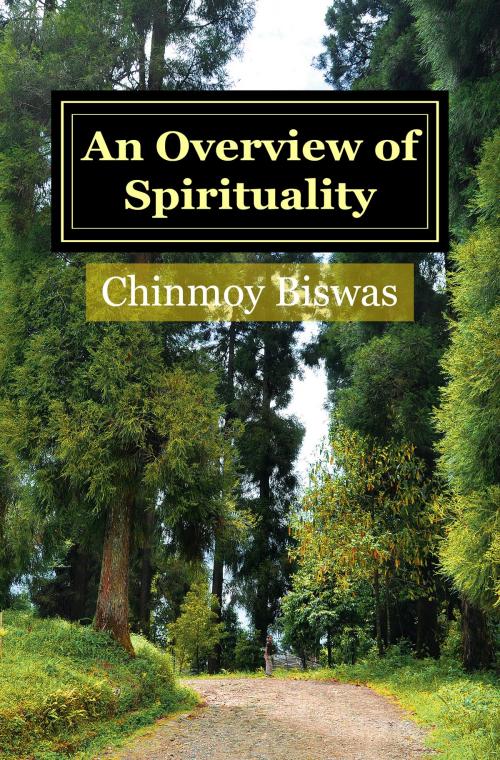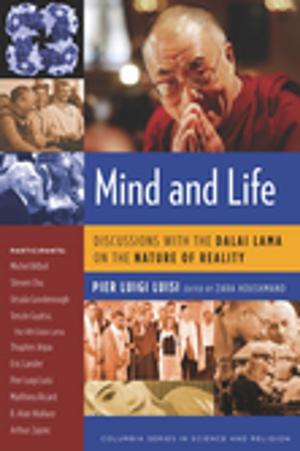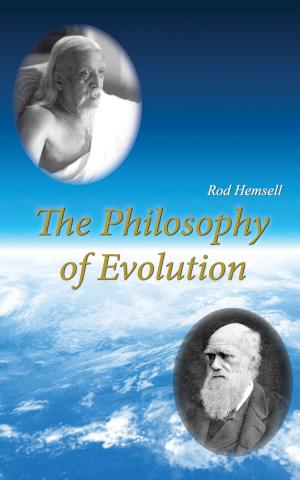An Overview of Spirituality
Nonfiction, Religion & Spirituality, Inspiration & Meditation, Spirituality, Philosophy| Author: | Chinmoy Biswas | ISBN: | 9781311774880 |
| Publisher: | Chinmoy Biswas | Publication: | February 26, 2014 |
| Imprint: | Smashwords Edition | Language: | English |
| Author: | Chinmoy Biswas |
| ISBN: | 9781311774880 |
| Publisher: | Chinmoy Biswas |
| Publication: | February 26, 2014 |
| Imprint: | Smashwords Edition |
| Language: | English |
Understanding different aspects of spirituality is the objective of this short book. So far no simple book is available, on its different aspects, that allow a person to get an overview of the subject in one place. Many books highlight how the writer himself was benefitted in his Sadhna, or represent the interest of one ‘school of thought’ or the sect the writer belongs to. It is very natural to be biased by one’s own religion, or group, or outlook, or experience and then not include other’s views in writings. But it does not take us to a substantial objective. We want to progress overcoming all such tendencies.
We need an overall picture of the process for this progress. Some books give so much detail of some issues that it becomes difficult to get a total picture easily. Whatever we do, we should always follow a rational and logical approach. In fact, this is also a teaching of Vedanta Philosophy. Some have learnt to be rational, live with a positive attitude, have translated experiences to wisdom, converted weakness to strengths and then have stopped being judgmental towards self, or towards others, or towards teachings of other sects we do not belong to, or towards the teachings available in different literatures. They are progressing in the right direction in terms of spirituality.
Sadhna makes one evolve into something better, considering both spiritual and non-spiritual aspects in a person. Spirituality develops with Sadhna. So Sadhna is part of the objective in this book. We want to know which Sadhna method should be chosen out of many such methods available.
While writing this overview, I faced several dilemmas. One, which topics were to be included and what need not be? All issues of spirituality may not be equally important. Second, where to start the subject and where can I stop? It may not be necessary for all to go into each and every detail. Thirdly, if I make the discussion short, will it remain interesting and useful to the reader? I have decided to be ‘short’ and ‘simple’, to get a picture of the subject as a whole quickly; not get lost in its details or the vastness of information in the field, or get stuck elaborating details, though I wanted to include all important issues of spirituality and Sadhna.
Developments will happen in modern science, especially in subjects like, sociology, psychology, group dynamics and other behavioural sciences, and they will ultimately find that the Science of Spirituality is complementary to and even encompasses many things in behavioural sciences. Then we shall understand our need for growth better.
The deepest potential of any human being is spiritual in nature. It has to grow naturally within us, as a tree grows or flower blooms in the garden. This growth is in the domain of ‘being’, not in getting importance, wealth or information. Through Spirituality we distinguish easily between what we need, what we want and where our effort is leading us. In Spirituality there is a possibility of living a life we need to, as a source of love, source of knowledge, source of honesty, source of truth, source of vitality, source of impartial choices, while interacting honestly with others without inhibition. This leads to the best potential of human development.
Everything good flows from the primary qualities present in the soul. There are several such qualities and love is one of them. Human virtues are love in action. If you know the Ultimate, i.e. ‘The God’, all happiness flow from there, all peace flow from there, all knowledge flow from there, all strength to take action flow from there, all human values flow from there, proper analysis to take correct decision flow from there. This knowledge is spiritual knowledge, and ultimately it will manifest in total liberation of the human being. This book attempts to guide in taking the first step.
Understanding different aspects of spirituality is the objective of this short book. So far no simple book is available, on its different aspects, that allow a person to get an overview of the subject in one place. Many books highlight how the writer himself was benefitted in his Sadhna, or represent the interest of one ‘school of thought’ or the sect the writer belongs to. It is very natural to be biased by one’s own religion, or group, or outlook, or experience and then not include other’s views in writings. But it does not take us to a substantial objective. We want to progress overcoming all such tendencies.
We need an overall picture of the process for this progress. Some books give so much detail of some issues that it becomes difficult to get a total picture easily. Whatever we do, we should always follow a rational and logical approach. In fact, this is also a teaching of Vedanta Philosophy. Some have learnt to be rational, live with a positive attitude, have translated experiences to wisdom, converted weakness to strengths and then have stopped being judgmental towards self, or towards others, or towards teachings of other sects we do not belong to, or towards the teachings available in different literatures. They are progressing in the right direction in terms of spirituality.
Sadhna makes one evolve into something better, considering both spiritual and non-spiritual aspects in a person. Spirituality develops with Sadhna. So Sadhna is part of the objective in this book. We want to know which Sadhna method should be chosen out of many such methods available.
While writing this overview, I faced several dilemmas. One, which topics were to be included and what need not be? All issues of spirituality may not be equally important. Second, where to start the subject and where can I stop? It may not be necessary for all to go into each and every detail. Thirdly, if I make the discussion short, will it remain interesting and useful to the reader? I have decided to be ‘short’ and ‘simple’, to get a picture of the subject as a whole quickly; not get lost in its details or the vastness of information in the field, or get stuck elaborating details, though I wanted to include all important issues of spirituality and Sadhna.
Developments will happen in modern science, especially in subjects like, sociology, psychology, group dynamics and other behavioural sciences, and they will ultimately find that the Science of Spirituality is complementary to and even encompasses many things in behavioural sciences. Then we shall understand our need for growth better.
The deepest potential of any human being is spiritual in nature. It has to grow naturally within us, as a tree grows or flower blooms in the garden. This growth is in the domain of ‘being’, not in getting importance, wealth or information. Through Spirituality we distinguish easily between what we need, what we want and where our effort is leading us. In Spirituality there is a possibility of living a life we need to, as a source of love, source of knowledge, source of honesty, source of truth, source of vitality, source of impartial choices, while interacting honestly with others without inhibition. This leads to the best potential of human development.
Everything good flows from the primary qualities present in the soul. There are several such qualities and love is one of them. Human virtues are love in action. If you know the Ultimate, i.e. ‘The God’, all happiness flow from there, all peace flow from there, all knowledge flow from there, all strength to take action flow from there, all human values flow from there, proper analysis to take correct decision flow from there. This knowledge is spiritual knowledge, and ultimately it will manifest in total liberation of the human being. This book attempts to guide in taking the first step.















